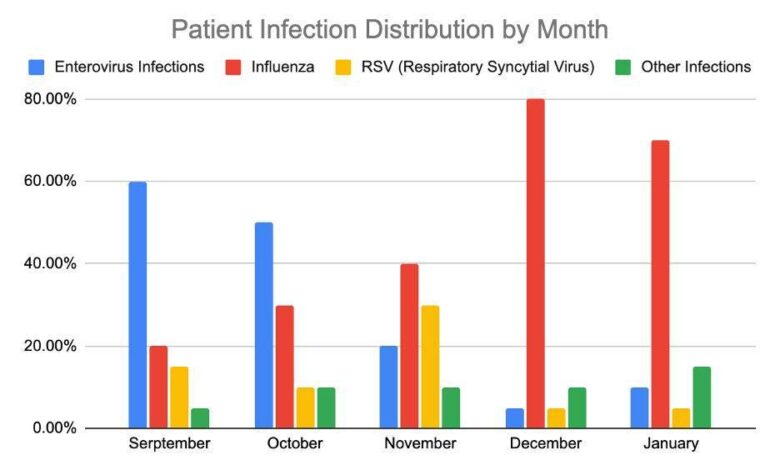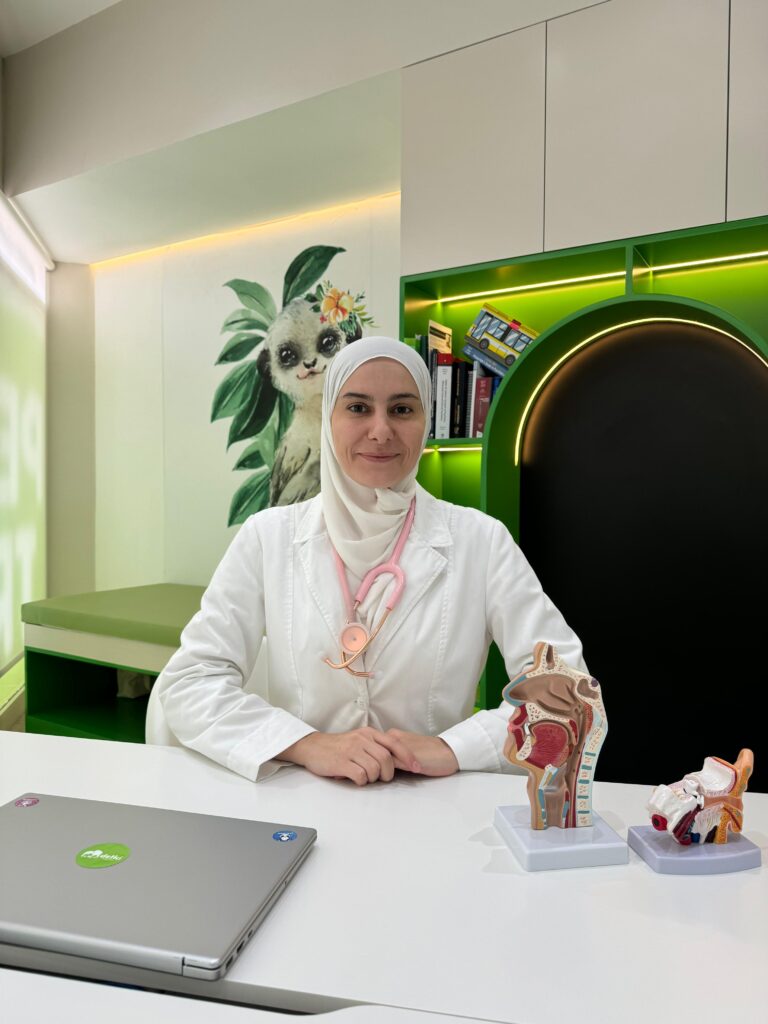Doctors Warn of Rising Viral Infections among Expat Children in Dubai during Winter

Doctors in Dubai are urging parents to be cautious as viral infections among children continue to rise during the winter season, especially within the expat community. Seasonal patterns show a significant increase in pediatric viral illnesses, with enterovirus infections peaking in September and October, respiratory syncytial virus (RSV) emerging in October, and a sharp rise in influenza cases from November onwards. Upper respiratory tract infections (URTI) have accounted for 60% of all cases treated.
Medical experts recommend proactive health measures to protect children, including vitamin D supplementation, annual flu shots, regular physical activity, and consistent hygiene practices.

Dr Ksenia Butova, Founder of Detki Family Clinic and Molodost Clinic stated: “Since September 2024, out of the 3,680 young patients we have treated in Dubai, illnesses have dominated visits with 76% of cases related to various ailments; while vaccinations, routine check-ups and scheduled consultations remain important to most families.”
“Expat families in Dubai face unique challenges, including adapting to the city’s climate, navigating a diverse school environment, and managing the stress of frequent travel. Therefore, proactive health management including early intervention and preventative strategies can foster a holistic approach to well-being and significantly mitigate the impact of seasonal illnesses,” added Dr Ksenia Butova.
For expat families, adapting to a new healthcare system adds complexity to managing children’s health. Familiarity with trusted healthcare providers is often lacking. Prioritizing prevention becomes essential, as it reduces reliance on urgent interventions and helps families maintain confidence in managing seasonal health risks.
Dr Khiadi Tseloeva, DHA-licensed GP in Pediatrics said: “In addition to influenza, we have seen cases involving coronaviruses, adenoviruses, and less frequent viral infections. While many viral illnesses require symptomatic care, influenza benefits from early antiviral intervention, such as oseltamivir, under pediatric supervision. Secondary bacterial infections—like pneumonia and otitis—have also occasionally emerged following viral illnesses, requiring careful diagnosis and targeted treatment.”
“Prevention begins with reinforcing immunity and adopting healthy habits. Vitamin D supplementation plays a pivotal role, particularly for children spending limited time outdoors. Physical activity should remain a part of daily routines to enhance overall resilience, while the annual flu shot is vital for reducing complications from influenza. Finally, instilling hygiene practices such as regular handwashing and the use of hand sanitizers at school or during outdoor activities adds an essential layer of protection,” added Dr Khiadi Tseloeva.

“Clinics should strive to combine medical expertise with a deep understanding of the cultural and emotional needs of expats. Families value clinics that offer personalized care, clear communication, and a familiar approach. This level of trust allows parents to feel supported as they navigate their children’s healthcare needs in an unfamiliar environment. For example, we had a case where an expat mother shared a story about how her toddler faced three bouts of viral infections in just two months after joining a new nursery,” concluded Dr Ksenia Butova.
At the first signs of illness, consulting a pediatrician is important. Prompt diagnosis and treatment not only alleviate discomfort but also reduce the risk of complications. Parents are advised to always opt for a clinic with an experienced team equipped to guide families through these situations, ensuring children remain healthy, active, and resilient throughout the winter months.




